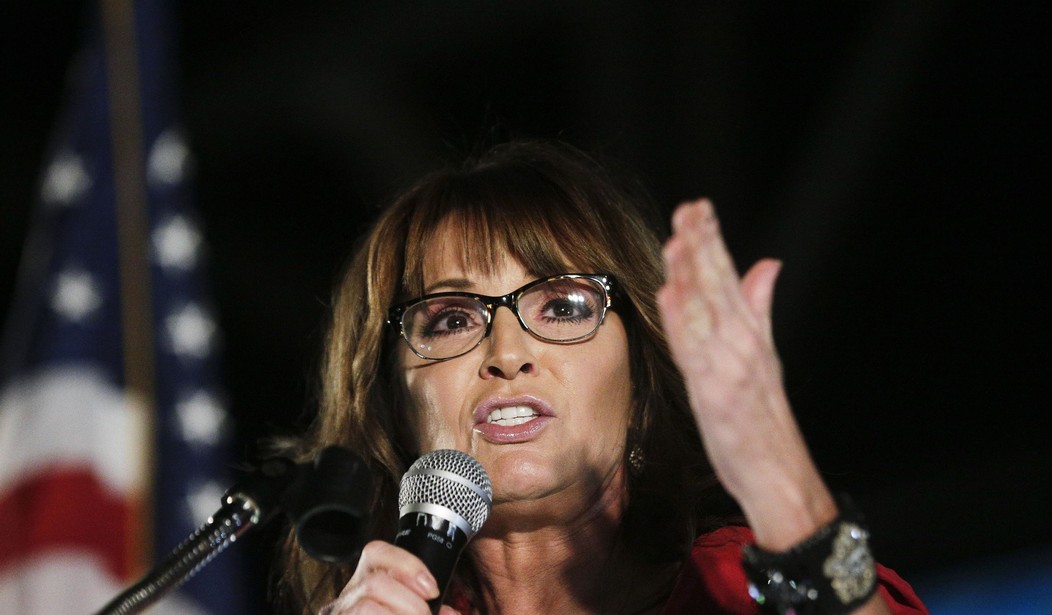I’ve been railing against the idea of so-called ranked-choice voting for years, so it was a serious disappointment when Alaska decided to adopt the practice a few years ago. They had their first test run of the new system during the special primary to determine a replacement for Don Young, who passed away earlier this year. The results produced as much of a mess as many of us had anticipated. Now, as Alaskans prepare to turn out for the second of what will wind up being four (!) elections this year, the level of potential confusion has only increased. I’m glad to see that I wasn’t the only one who has noticed this situation. At the Wall Street Journal, Sarah Montalbano writes that ranked-choice voting has made “a joke” out of Alaskan primary politics.
Advocates of ranked-choice voting say it elevates centrist candidates, keeps campaigns positive, and promotes debate of important issues. That isn’t how it’s going in Alaska. The Last Frontier is in the middle of an experiment that has confused voters, popularized fringe candidates and could lead to unrepresentative outcomes…
The whole business has sown confusion. Alaskans remain unclear how ranked-choice voting works despite millions spent on education efforts by state agencies and progressive cheerleaders like Alaskans for Better Elections. Official Division of Elections resources instruct voters to “rank as many or as few candidates as you like,” but ballots without second, third or fourth-place preferences won’t count if the first choice is eliminated, creating the possibility that candidates with less real support will triumph. Those who vote the way they’ve always done—selecting only one candidate—will be at a disadvantage.
Even the liberals at Alaska Public Media recognize that ranked-choice voting poses “difficult questions,” including “who would be the least bad” alternative to a voter’s first choice. The prospect of gaming out a “least bad” strategy will dissuade some citizens from voting at all—such as my father, who threw away his primary ballot after voting in every election for decades.
Montalbano focuses most of her completely valid criticism on the confusion being sown in the primary process. She also notes that voters are being effectively blackmailed into casting votes for candidates they may not approve of or agree with out of fear of having their ballots completely erased from the election results. (That’s what will happen to voters who decline to select any second-choice candidates if nobody gets 50% in the first round and their candidate is eliminated.)
These are both reasonable arguments against ranked-choice voting, and these issues may produce some very dubious outcomes in some of the races in Alaska this year. But I still think the problem runs deeper than that. This system runs contrary to the entire idea of holding democratic elections. At the core of these principles is the fundamental need to ensure we have “one person, one vote.” If you vote more than once in the same election, we have a name for that. It’s voter fraud.
But with ranked-choice, many Alaskans will wind up voting two, three, or even four times. Each of those succeeding votes will be awarded to candidates that the voter found less and less palatable as compared to their original choice. And as already noted, the voices of anyone refusing to go along with this scheme will not be counted if their first choice is eliminated and the election goes to an “instant runoff.” That’s simply not right.
Unfortunately, the Constitution leaves it up to the individual states to determine the manner in which people will vote. But that doesn’t mean that the states need to make silly choices like this. It is not written in stone anywhere that someone must receive a majority of the vote in order to be declared the winner. In fact, the Founding Fathers crafted the rules in the Constitution anticipating that there would be elections decided by a plurality.
Alaska is making a joke out of the two-party system as well. If you want to complain about the negative impact that elections formed around only two parties have had on the nation, you are free to do so. I agree. But it’s the system we have, at least for the moment, and the parties are supposed to hold primaries. If Alaskans want to turn their elections into some sort of free-for-all cattle call, they are free to do so. But they should just do away with political party registration entirely. These races in Alaska are not primaries.








Join the conversation as a VIP Member